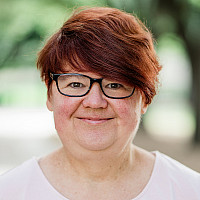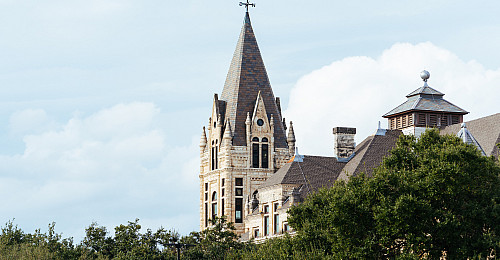
- burksr@southwestern.edu
- 512.869.8098
- Fondren-Jones 212
Romi Lynn Burks
Professor of Biology
Expertise
Aquatic ecology, molecular ecology, wetland science, apple snails, invertebrate biology and CHOCOLATE
Hi! I’m @ProfRomi, an aquatic ecologist at Southwestern University. Visit my comprehensive webpage at www.profromi.com to learn more about my integration of research, teaching and a special interest in teaching with chocolate.
In my science life, I work as an aquatic ecologist interested in how ecological life histories influence behavior, diversity and distribution of freshwater invertebrates. My lab has adopted a number of applications of molecular ecology to study freshwater snails.
My research at Southwestern focuses primarily on a group of large freshwater snails - commonly called apple snails because they can reach the size of an apple. In Texas, one species, Pomacea maculata (formerly P. insularum), occurs as a non-native, invasive species but has native populations in South America.
My Teaching Philosophy rests on 4 main pillars:
1. Teach who you are
2. Make your classroom a lab (experiment!)
3. Make your lab a classroom (teach critical thinking!)
4. Connect anything and everything to chocolate!
I spent the summer of 2025 as a student myself - taking a Cocoa Masterclass in Bahia, Brazil, from Cacao Latitudes and working towards my Level 3 Certification from the International Institute for Cacao and Chocolate Tasting during a origin trip to Peru. I can’t wait to share what I’ve learned with my students.
In the News


















